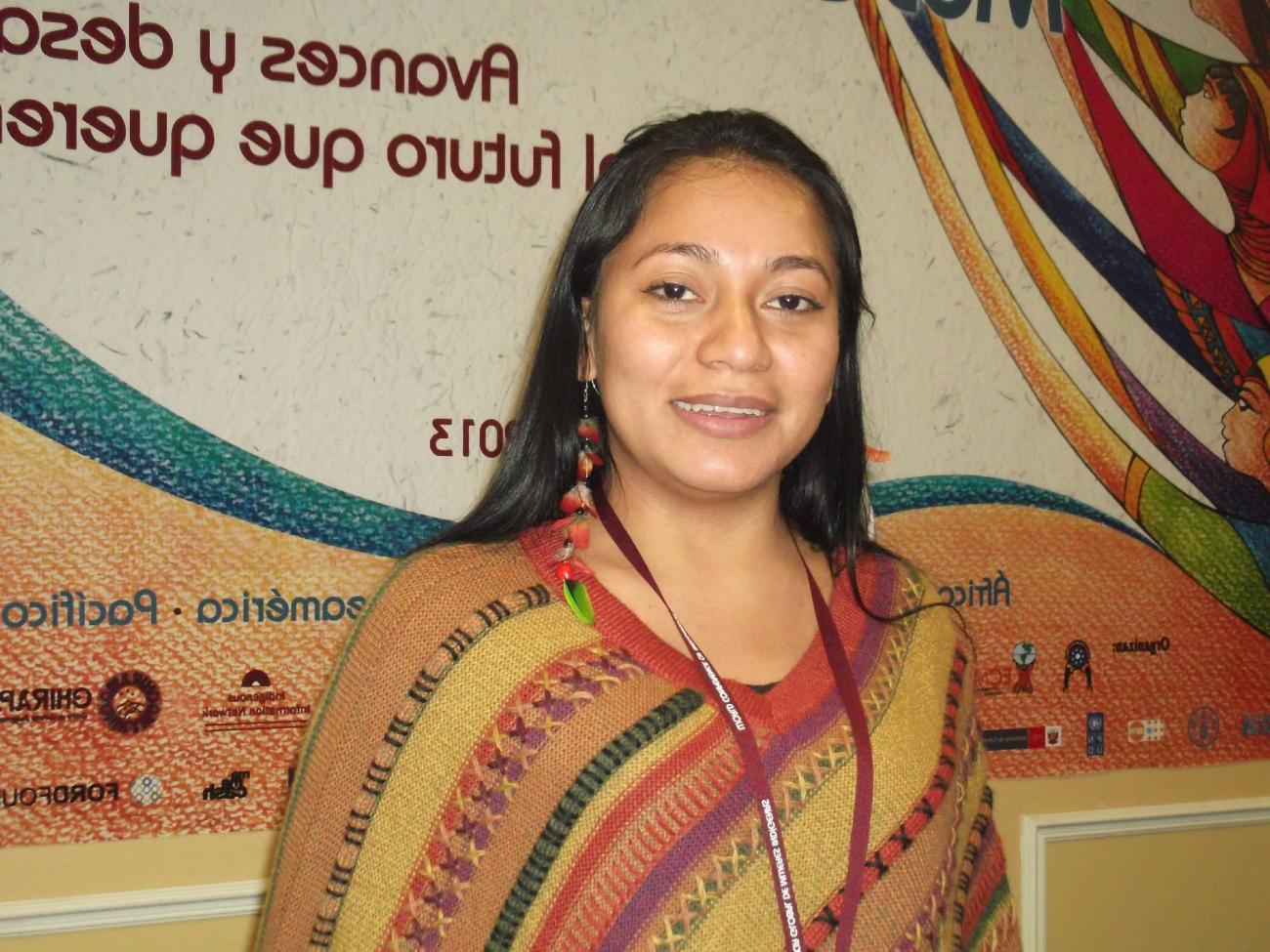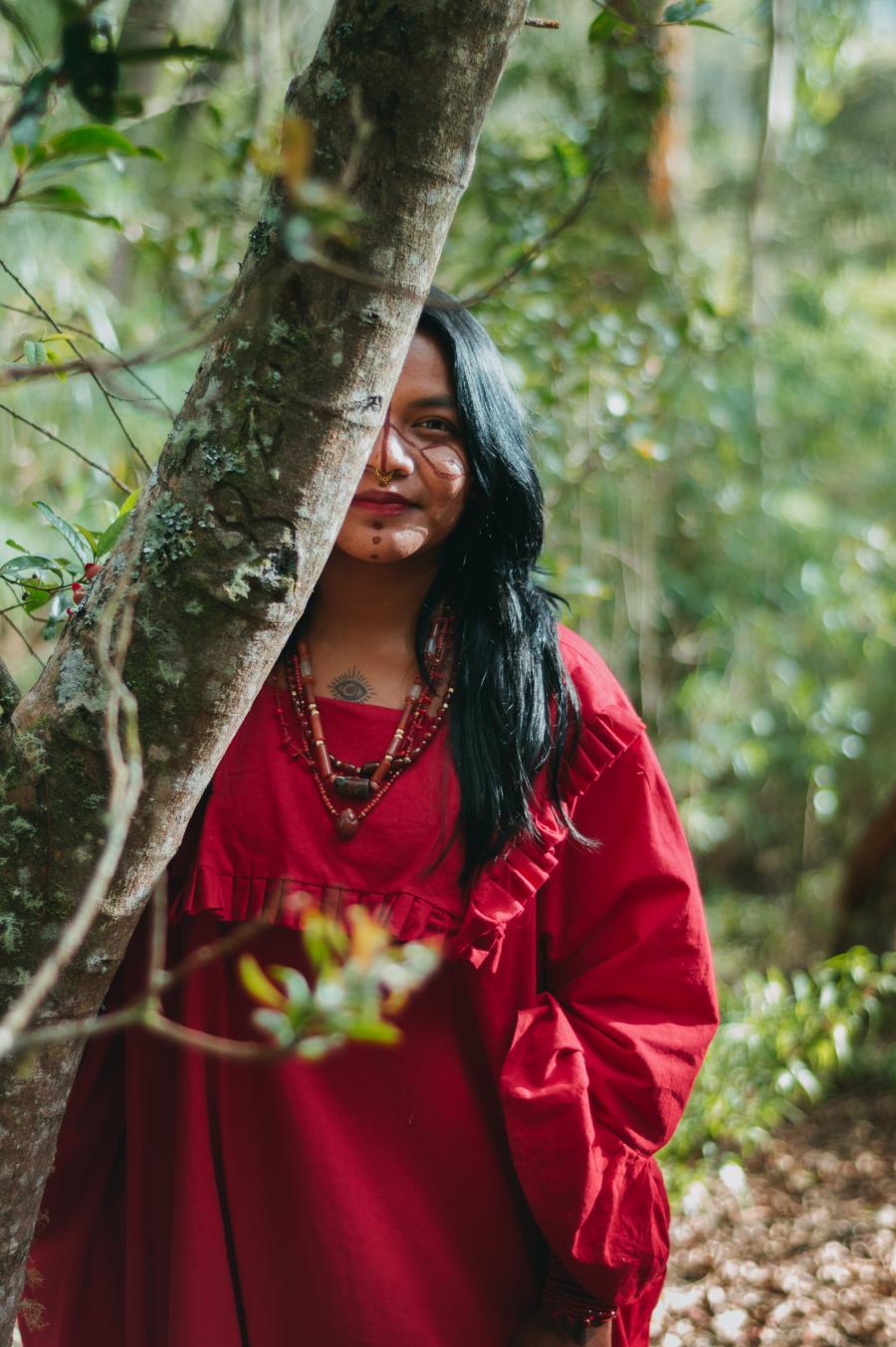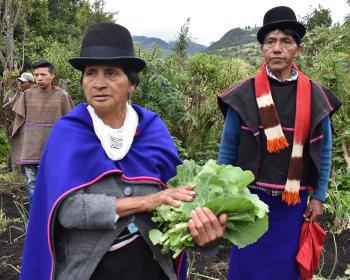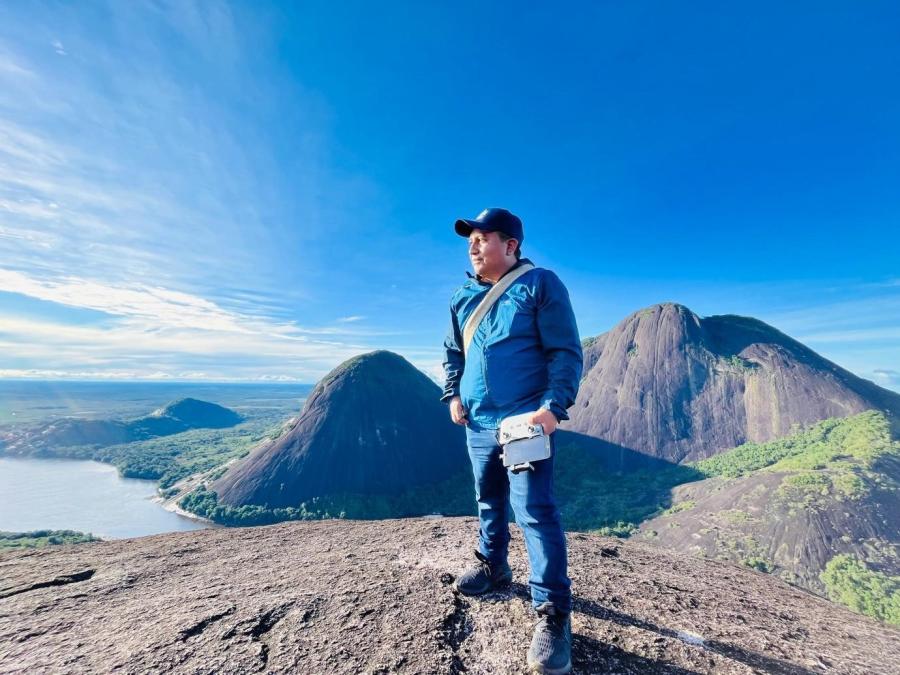
By María del Rosario Sul González
Carol Gonzalez Aguilar is the coordinator of Women and Family from Organización de los Pueblos Indígenas de la Amazonía Colombiana (OPIAC) located in the village of Sano in the department of Vaupéz in Colombia. She was a participant observer at the World Conference on Indigenous Women held in Lima, Peru, from 27 to 30 October 2013.
Aguilar shared her concern about climate change that she recognized from living in the community in recent years. It has changed the very way of life in their community as well as the traditional systems, economics, and foodstuffs.
Specifically these changes lie in the alteration that has occurred in the ecological calendar dates in the region, which are a guide to suitable planting for the farmlands. This guide determined the time of planting, burning food and collecting food in the proper way.
"For years there was a time specified in which you could clean, burn, and plant food now I do not know when to do it, because at times there is a lot of rain and other times there is total drought."
The problem of foodstuffs has also been affected not only by food crops but also by fish consumption. Because of climate change, the fish have become very irregular and this has decreased the presence of this food in Amazonian community households, thus altering the cultural food traditions. Culturally in the community there were specific times to eat fish, specific times to consume wild fruits, and specific times to hunt. In the fishing season of previous years, it was common for people to leave their homes and gather in the ports for this activity like an everyday activity of the time.
"We no longer know when the fish will come. Now we go fishing when we can and this has caused an imbalance in the food and daily life of men, women and children in our community. It has altered an entire life cycle. It has affected women specifically because climate change affects the stability of the home. The husband, who is the head of the household, must move away from the home for days to fish in the open water in order to ensure food for his family and still this approach is rarely successful."
Aguilar believes that one of the solutions to counter this problem is to raise awareness among people, to dare to care about the rivers, and to then achieve a favorable change that allows them to continue preserving ourselves as peoples, including the traditions of food. This part of awareness has not yet worked in the community, but they are aware that there is a lot of work to do, for the sake not only of women but of all humanity.
"There are damages that have been done to the environment by the hands of human beings that cannot be undone, what remains is to repair the environment and look through our traditional knowledge as indigenous people and as indigenous women we must figure out how to counter this problem and adapt to these changes. "



